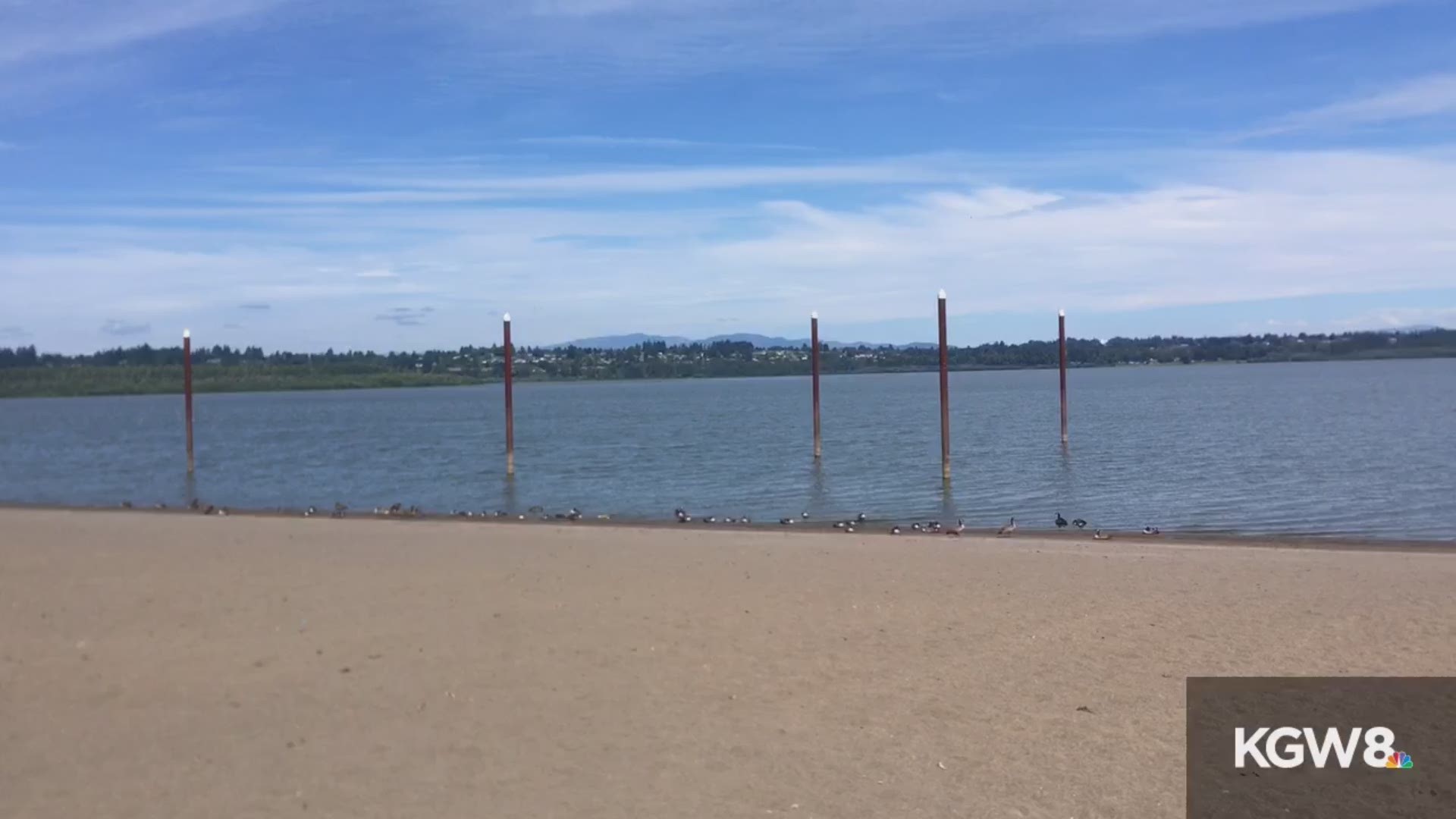Editor's note: The video in this story aired July 12.
UPDATE AUG. 8:
Vancouver Lake swimming beach was reopened on Aug. 8
Original story from July 24:
VANCOUVER, Wash. -- Clark County health officials have closed the swimming beach at Vancouver Lake after test results revealed elevated levels of toxic blue-green algae in the water.
Clark County Public Health is advising against swimming, kayaking, paddle boarding, canoeing and water skiing at the lake. Closure signs are being posted at the swim beach and other access points to the lake.
Vancouver Lake has been under an algae advisory since June 12 and has seen multiple advisories and warnings due to dangerous toxins detected in the water.
High E. coli levels also prompted a lake closure earlier this month.
Blooms of blue-green algae, also known as cyanobacteria, are currently present at the swim beach, Burnt Bridge Creek inlet and flushing channel near the swim beach, according to Clark County Public Health.
Blue-green algae can pose a significant health risk if the cyanobacteria or toxins are ingested, inhaled or come into contact with skin. Symptoms include wheezing, coughing, chest tightness and shortness of breath. Skin contact can lead to rash, itching, blisters and eye irritation.
If water with cyanotoxins is accidentally swallowed, symptoms can include abdominal pain, diarrhea, vomiting, numbness of the lips, tingling in fingers and toes, and dizziness.
The toxins can be fatal to pets that drink the water.
Vancouver Lake Regional Park remains open. Water in park restrooms and shelters is not affected by lake water and remains safe.
Additional information about blue-green algae and current advisories are posted on the Public Health public beach website.

